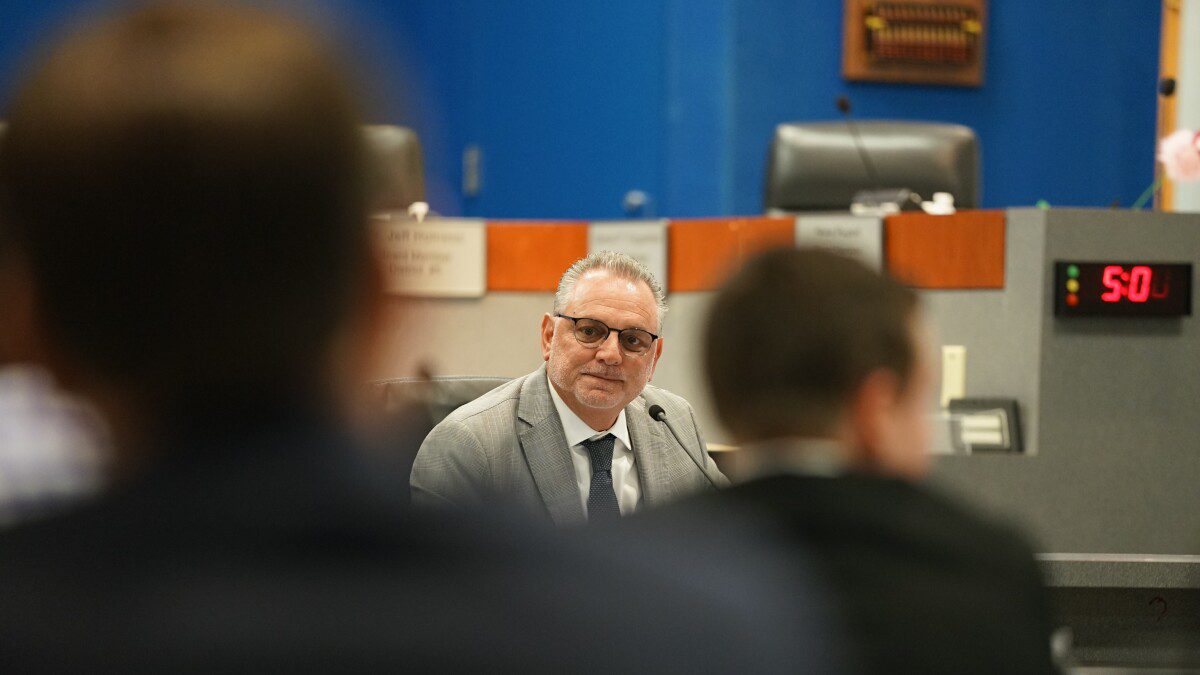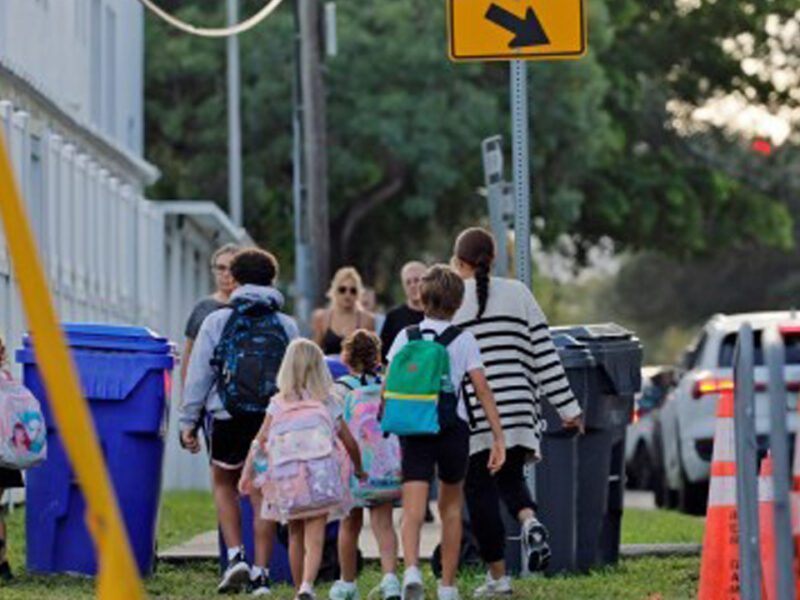
Program aimed at keeping Broward students out of jail could be closed by school district
WLRN | By Gerard Albert | August 28, 2023
Broward’s school board is set to vote on the future of an arrest diversion program for students — as activists and the county’s public defender warn that closing it down would lead to more children being arrested.
PROMISE – which stands for Preventing Recidivism through Opportunities, Mentoring, Interventions, Supports and Education – offers students who are accused of nine eligible misdemeanors an alternative to being arrested. The student receives civil citations from the school district and attends alternative schooling where they are offered counseling and other services.
The arrest diversion program was hailed as a success after its inception in 2013, but came under scrutiny in 2018 after it was revealed that the shooter who killed 17 people at Marjory Stoneman Douglas High School was referred to the program but did not complete it.
Now, following changes that some say have damaged its efficacy, the school board is due to vote on a proposal to end the program at a special meeting on Tuesday.
The program started as a way for the district to help troubled students get help and avoid the criminal justice system. But after changes from the state required the district report all incidents to a state-wide database, school officials say the program has become a conduit to the justice system.
If the program is shut down the board has indicated it would replace it with a similar program — with the notable change that the school district would not issue citations, leaving that decision up to law enforcement.
But critics say this will lead to more arrests – especially for Black and Latino children and those with disabilities.
State Attorney Harold Pryor says the district should be handling these cases.
“My office isn’t equipped to deal with it. The criminal justice system isn’t equipped to deal with it, and we need to ensure that we have a school-based system or school-based program that doesn’t criminalize children,” Pryor told school board members during a June meeting when the board agreed to delay the vote on ending PROMISE to consult stakeholders like the State Attorney’s Office and Public Defender’s Office.
During a town hall in Lauderdale Lakes last week, Public Defender Gordon Weekes joined school board member Jeff Holness and other elected officials to talk about the upcoming vote.
“The courtrooms will be filled again. My office will be filled again. I will be representing more children in this community than ever before again. That is what’s going to happen when they get rid of PROMISE. That’s what happened before,” said Weekes.
The PROMISE program was started in 2013 as an intervention program in response to an increasing number of students – especially Black and Latino boys – being arrested in Broward County schools. At that time, children who were referred to the program were not put into any databases.
But today the program does require that the children be given civil citations and be entered into a state-wide database that is accessible by law enforcement. That came into force after the 2018 Parkland shooting when members of the Marjory Stoneman Douglas Public Safety Commission slammed the district for keeping data from the state.
The district has to contact law enforcement before they issue a citation for the eligible misdemeanors which include: alcohol sales, alcohol use, major disruption on campus, misdemeanor possession of drugs or drug paraphernalia, mutual combat fighting, petty theft, trespassing and vandalism.
Law enforcement make a decision to prosecute the student, give them a citation or let the school handle disciplinary action. If they decide not to arrest the student or send them to court, the district will send the child to PROMISE and give them a civil citation.
Three-quarters of citations come from district
In 2022, the district was responsible for 76% of all civil citations in the county, issuing 1,213, compared to 108 by the Broward Sheriff’s Office, 51 by Hollywood police, 39 by Plantation police, 30 by Pembroke Pines and fewer than 30 each for 11 other law enforcement agencies in the county.
If the program is removed then the district will no longer issue citations, leaving that in the hands of law enforcement. This will keep the district from feeding children into the criminal justice system, according to Jodi Washington, the district’s Director of Equity, Diversity and School Climate, who spoke during an April workshop on the program.
The program started off as an intervention program, designed to help students avoid the criminal justice system, and has turned into a pre-arrest diversion program which forces the district to feed into the juvenile justice system with civil citations, she said.
“A program that was originally designed to be an intervention and not enter children into the system, because it’s now a pre-arrest diversion program, the school district is the conduit into the system,” Washington told school board members.
Children would still be able to access resources like counseling at one of three learning centers around the county.
But if the program is removed, arrests will start to happen again says Marsha Ellison who is President of the Fort Lauderdale/Broward NAACP.
“We need folks to be able to hear and understand the cries of our children and not let handcuffs be the only opportunity that they have to get help,” she told the crowd gathered at the Lauderdale Lakes town hall.
The push to change the program comes just months after a local criminal justice advocacy group called on Sheriff Gregory Tony to use a civil citation program for adults who are charged with nonviolent misdemeanors more regularly.
The vote is scheduled for Tuesday at the Kathleen C. Wright building in Fort Lauderdale. The public is welcome to make public comment at the meeting and it can be streamed on the school board’s website.





